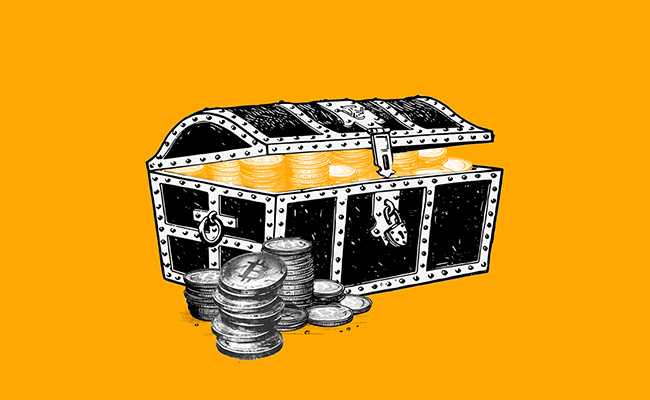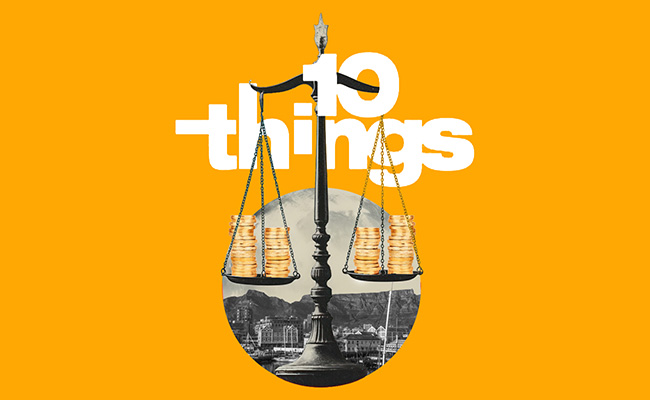One of the most unusual and unexpected stories from the world of crypto has unfolded over the past year. It actually started much earlier, in 2020, with a company called MicroStrategy, which primarily operated in analytics software.
Its founding shareholder and CEO, Michael Saylor, had become convinced (an understatement) about bitcoin’s promise, and decided to convert $250m of his treasury’s dollars into bitcoin, presumably converting them from dollars that had been sitting in some conservative investment account at a bank.
Then things took a very interesting turn. Bitcoin’s price started surging, and MicroStrategy’s net asset value grew accordingly. So Saylor, a true believer, began selling equity in his company to raise more money to purchase additional bitcoin. MicroStrategy thus became the first “bitcoin treasury company”. Its software business continued but was entirely overshadowed by the value of its bitcoin holdings.
Who was buying his shares?
At first, it seemed that it was only bitcoin-curious investors who couldn’t be bothered to learn how to buy bitcoin on a crypto exchange, but were perfectly comfortable buying shares; that was familiar territory. But it was deeper than that. Many asset managers were (and are) prohibited from buying bitcoin because their companies forbid it. But they could buy shares. To get exposure to bitcoin, they simply had to buy shares in MicroStrategy.
By the end of 2023, MicroStrategy’s bitcoin treasury had become so huge (more than $5bn) that Saylor decided to refocus the entire business on a bitcoin-first future, designing increasingly sophisticated financial instruments to lay his hands on capital to purchase more bitcoin, ranging across the spectrum from equity to convertibles to debt.
Then it got even stranger. Punters who dove into this new “bitcoin treasury” company drove the price of MicroStrategy’s stock up so high that its market price far exceeded the value of its bitcoin holdings.
To some commentators, it appeared to be a Ponzi scheme. It was like saying: “My company owns $100 worth of gold in a vault and does nothing else. Please buy my shares and lend me money, because I am going to buy more gold.” And watching your share price rise to a market value of $200, while the value in your gold is half that.
MicroStrategy wasn’t selling a product. All it did was hold bitcoin, for goodness’ sake. Value was being created out of thin air.
Surely the share price had to come back to earth and reflect its net asset value?
It didn’t, and it hasn’t.
It turns out that people coming in and buying shares or convertible bonds have been swayed by Saylor’s unshakeable belief that the price of bitcoin is “going up forever, Laura”, to quote Saylor’s response to being asked about bitcoin’s price by crypto podcaster Laura Chen. Which indeed it has, especially recently.
Here are the jaw-dropping numbers:
- Strategy (MicroStrategy’s new name) has spent nearly $43bn to purchase about 601,550 Bitcoin since 2020.
- The value of Strategy’s Bitcoin holdings is now almost $72bn.
- The market value of Strategy is more than $126bn.
WTF, right?
Copy cats
It didn’t take a rocket scientist to predict what has now happened. Other companies looked jealously at Saylor’s company and concluded that building and selling widgets was boring, and that pivoting to become a bitcoin treasury company was a much easier and faster way to get rich.
We now have more than 150 crypto treasury companies worldwide, most of which hold bitcoin, with a few also dabbling in other currencies, such as ether. Some of them have been purpose-built to hold crypto, others have shifted from previous business models, just like Strategy. In most cases, at least where these companies are publicly traded, their share prices have increased dramatically, up to 100% and more.
They include special investment vehicles, crypto mining companies, gaming companies, crypto exchanges, new companies headed by serious crypto innovators like Jack Mallers of Strike, VC luminaries like Justin Sun, investment icons like Cantor Fitzgerald – basically anyone with money, faith and big cojones. Every one of them clearly expects this party to continue for some while. It is a quintessential (digital) gold rush.
And yet. Surely the laws of the universe dictate that a zero-cash-flow-producing store of assets should not be trading at more than net asset value? And surely the price of bitcoin must level out at some point, throttling the endless promise of appreciation? Unless, of course, the bitcoin ecosystem does, in fact, become widespread enough in the larger economy to enable the establishment of a bank-like lending and borrowing business around it.
For the moment, though, it seems like magic wealth is being created. Good for them. As for me, I will be conservative and buy my bitcoin directly from cryptocurrency exchanges.
Much safer.
Steven Boykey Sidley is a professor of practice at Johannesburg Business School and a partner at Bridge Capital. His latest book, ‘It’s Mine: How the Crypto Industry is Redefining Ownership’, is published by Maverick451 (South Africa) and Legend Times Group (UK/EU). Read more at stevenboykeysidley.substack.com.
Top image: Rawpixel/Currency collage.
Sign up to Currency’s weekly newsletters to receive your own bulletin of weekday news and weekend treats. Register here.













